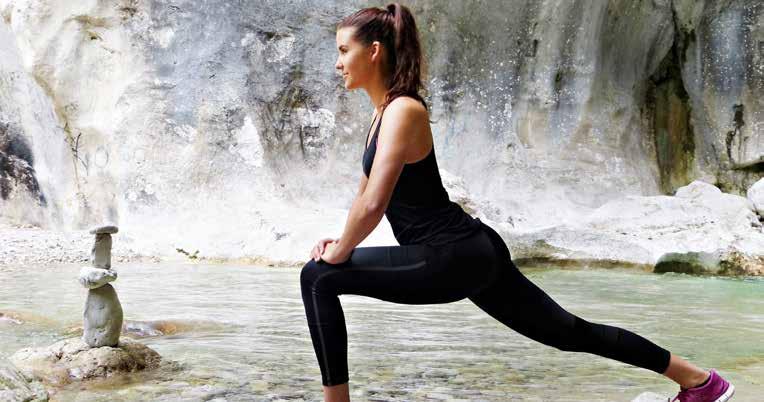
2 minute read
beat the new year blues
by PT Today
January is a gloomy time for most people, so it’s no surprise that Aware has chosen this month to kick off Depression Awareness Week Nationwide (DAWN) its annual national campaign highlighting depression and bipolar disorder. Buy a Ticket, Book a Flight Now is the time to buy tickets to a play, concert or to organise a holiday.”This is about long-term term anticipation; it’s about having something to look forward to that will help you get through the winter,” says O’Meara. Chase The Light We know there’s not much sunshine around this time of year – but even natural daylight provides a big boost. “There’s a feel-good factor around experiencing natural light and engaging with nature,” explains O’Meara. So get out and about as much as you can at weekends – and try to get some natural sunlight during the working week too. It’s tempting to spend your entire lunch break in a warm canteen with your buddies, but try getting out and availing of sunlight and fresh air – you’ll feel the benefits! Find a Hobby Develop an indoor hobby for the cold, wet months – it’s important to have ideas for indoor entertainment – try baking, Scrabble, jigsaws, sewing or reading, as long as it’s an enjoyable activity you can look forward to on a regular basis which doesn’t require you to go out into the cold, miserable weather. Practise an Act of Kindness every day It’s well-known that offering our time and energy to those we care about, especially when we help them through their own difficult times, can bring us benefits too. “Performing an act of kindness for somebody else distracts us from focusing on our own difficulties and results in us feeling better about ourselves,” explains O’Meara. However, if this becomes onerous it’s not a good tool to use – it has to be easy to do, not another source of stress. Exercise Regular exercise really does lift your mood, and reduce stress and anxiety. On top of that, it improves physical health and energy levels. But don’t get the wrong impression, cautions O’Meara. “Some people think this is about cycling 50k or joining a gym – what we’re talking about here is a 15-minute walk at lunchtime, choosing to walk up the stairs instead of getting into a lift, or enjoying a game of golf at the weekend.” Eat Well It’s hard, because there’s been much over-consumption throughout the Christmas and early January holiday period – and let’s face it; you probably indulged those bad habits. However, it’s time to acknowledge that the food you eat can have an effect, not only on your physical health but your mental health too. Food and drinks containing high levels of sugar and caffeine may give you a temporary boost, says O’Meara, but will lead to a slump in energy and mood later on. Avoid consuming lots of sugar, caffeine and processed foods and instead shift our focus to healthy eating.
“These research-based services are freely available and we encourage anyone experiencing low mood to avail of them,” says O’Meara. “However, if you are experiencing symptoms of depression for a number of weeks or more, please contact your GP for further advice.”
Advertisement
This article was written by Áilín Quinlan and originally printed in the Irish Independent.
Read full article here https://www. aware.ie/blog/experiencing-new-yearblues/










